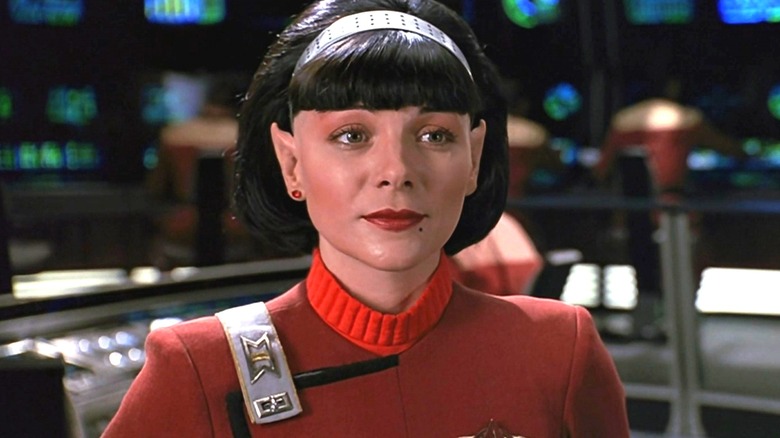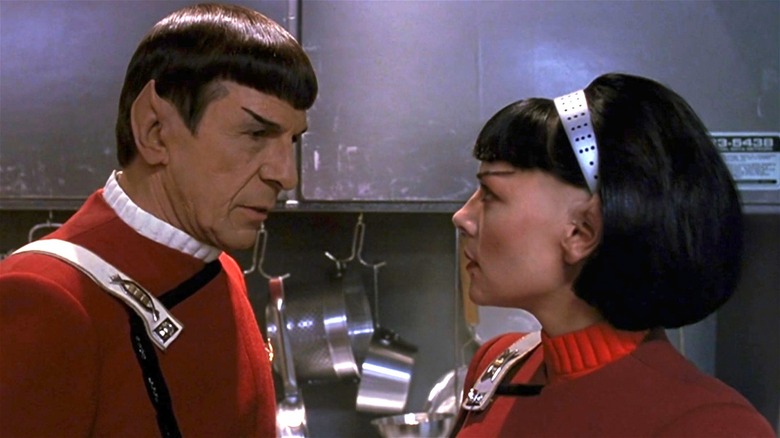Star Trek's Kim Cattrall Didn't Love Her Valeris Costume - But She Kept One Thing
The women of the Star Trek franchise have often had an uphill battle. Gene Roddenberry's original series premiered in the late '60s, when short skirts and little character development were in vogue. This changed throughout the franchise's life as it evolved into successful feature films. Female representation had improved so much that one actor even argued to give her character a skirt. When appearing in the best Star Trek movie, "Star Trek VI: The Undiscovered Country," Kim Cattrall lobbied for a more sleek appearance for the character.
"I think in science fiction, women should look great. Women should always look great ... and so should men. That's why people go to the movies," Kim Cattrall remarked to Cinefantastique (via ForgottenTrek.com). She reportedly disliked the uniform's girth while filming the movie.
The "Sex and the City" actor had been a fan of the original "Star Trek" series and wanted to be true to the conceit of the franchise. After being cast, she even went as far as to dye her hair to resemble Spock (Leonard Nimoy). Nimoy was her main scene partner, as Spock had taken Valeris under his wing after her impressive career at Starfleet Academy. While Cattrall didn't get the skirt she had lobbied for, she did keep her Vulcan ears as a memento of her time on the Enterprise, saying, "It's a wonderful memory of having done the movie."
Valeris wasn't just any background character
Kim Cattrall advocated for her right to appear how she wanted on screen, but she also appreciated that Valeris wasn't a carbon copy of how Star Trek portrayed women in the past. The Vulcan helm officer is integral to the plot of "Star Trek VI: The Underdiscovered Country."
"I don't think she's like the other women in Star Trek," Cattrall commented. "In the 60s, they were mostly beautiful women in great-looking, tight outfits with fabulous makeup and hairdos, more set decoration than real motivators in the mechanics of the plot." Her character is quite the opposite. "The Undiscovered Country" is the sci-fi version of the Cold War, as reflected by relations between the Klingons and the Federation.
During peace talks, Valeris reveals ulterior motives, which include sabotaging the already fraught relationship. As part of the Khitomer conspiracy, she and a group of similarly disaffected Federation, Klingon, and Romulan conspirators do what they can to stop cooperation. As a Vulcan, Valeris sees no logic in continuing peace talks since it would be impossible to trust the warring culture. Valeris' subterfuge is a betrayal, particularly for Spock when considering Spock's entire backstory. Because she was a Vulcan at the top of her class, the science officer had a vested interest in Valeris. This makes her final turn shocking, the kind of plot twist that women weren't always afforded in the original run of "Star Trek."

